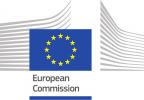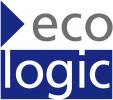An evidence base on the effectiveness of textile-to-textile recycling technologies
The textile industry must reduce its environmental footprint and social burden along global value chains. In the European Union, efforts are already being made to switch to a more circular and sustainable textile economy.
- What role can textile-to-textile recycling play in this?
- What potential does it have from a technical, environmental and economic perspective for the EU textile and clothing industry?
This final report aims to improve the knowledge about opportunities and challenges of textile waste recycling technologies, developed and applied at global and EU level. The report sheds light on the technical feasibility and maturity for market uptake of textile-to-textile recycling technologies – including mechanical and chemical recycling approaches. In recent years, considerable advances have been made in recycling and sorting technologies. The report also evaluates their economic and environmental effectiveness. In addition, the report identifies promising areas for future research, such as the dispersion and recovery of chemical substances or the development of alternatives for elastane.
Finally, the report outlines the necessary steps to support the industrial uptake of textile recycling technologies and circular business models, including for example support for (cross-) value chain collaboration.
The study aims to inform future policy development – in particular with regard to ongoing policy processes at EU-level with relevance for the textile sector, such as the upcoming EU Strategy for Sustainable Textiles, the Sustainable Products Initiative and the further development of the Circular Economy Action Plan.
Key policy options to enhance textile-to-textile recycling in the EU
The report presents the final outcomes of the research project "Technical, Regulatory, Economic and Environmental Effectiveness of Textile Fibres Recycling", assigned by the European Commission (DG GROW).
The research was conducted in cooperation by VITO, Centexbel and Ecologic Institute.
The complete report is now available for
The findings of this study can be used as evidence base to improve the knowledge of the effectiveness of recycling capabilities of textile waste. This study wants to substantiate the understanding of the existing technologies industrially applied or at research stage, which relate to all the different types of recycling (e.g. mechanical recycling, chemical monomer recycling, chemical polymer recycling, etc.). It also provides an analysis of the economic and environmental effectiveness of those recycling technologies and a roadmap of the textile recycling technologies under development in order to support their industrial uptake. Finally, it also provides an analysis on relevant policy initiatives in order to tackle potential regulatory barriers and scale up textile waste recycling activities in the EU.
European Commission, Directorate-General for Internal Market, Industry, Entrepreneurship and SMEs, Duhoux, T., Maes, E., Hirschnitz-Garbers, M., et al., Study on the technical, regulatory, economic and environmental effectiveness of textile fibres recycling : final report, Publications Office, 2021, https://data.europa.eu/doi/10.2873/828412









